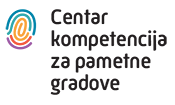Although more and more cities gradually digitize their business and invest in ‘smart-city’ solutions, and some of the most advanced have developed and integrated strategies of the smart city and have almost completely shifted to digital business, generally speaking – Croatian cities are only in the early stage of digital transition, as well as Croatia as a country with the digital readiness of society and economy at the very heart of Europe.
In order to gain an elementary insight into the digitalization of services and communication of city administration with citizens, experts from Apsolon, consulting companies specializing in digital business development, have made the first major study of digital readiness of the 20 largest Croatian cities. “This study,” says project manager and smart management director at Apsolon Ivana Novoselec, “a platform for further development of research tools and methodology that would track the development and progress of cities on an annual basis”.
In the category of major cities, Rijeka and Zagreb significantly deviate from Split and Osijek in all the elements of digitization of the administration’s relationship with the citizens we analyzed in the research. Rijeka stands out as a winner in front of Zagreb, although in many categories the differences are small. Rijeka as the most advanced city in Croatia compared to digitalisation is characterized in particular by the emphasis on openness and communication with citizens. Its management is oriented towards clear and clear communication (eg a very clear centralized approach to e-Services with well-organized access to services and forms), openness and participatory management (the largest number of open data sets, quality visualization tools and participative budgeting). The city of Zagreb stands out in the categories of quality technology solutions and integration with advanced systems, and is a particularly good example of finding functional online service interaction models (such as mobile applications, instant messaging, and quick service interaction) . The City of Osijek monitors them in relation to the digitalization of services and work on the opening of data and integration of application solutions in the work of the administration (nr. “Izido grants”, application for finding sources of financing for economic entities). Split compared to the digitization of its services and interaction with citizens lags behind for the other three large cities, although from the content organization on the website is seen the awareness that the development of e-services is a significant element of the quality of city administration and the bases on which the city needs to go work.
Apsolon (born from Sense Consulting d.o.o.) is one of the partners who will work on the further development of their analytical tools within CEKOMA for smart cities in Rijeka.



